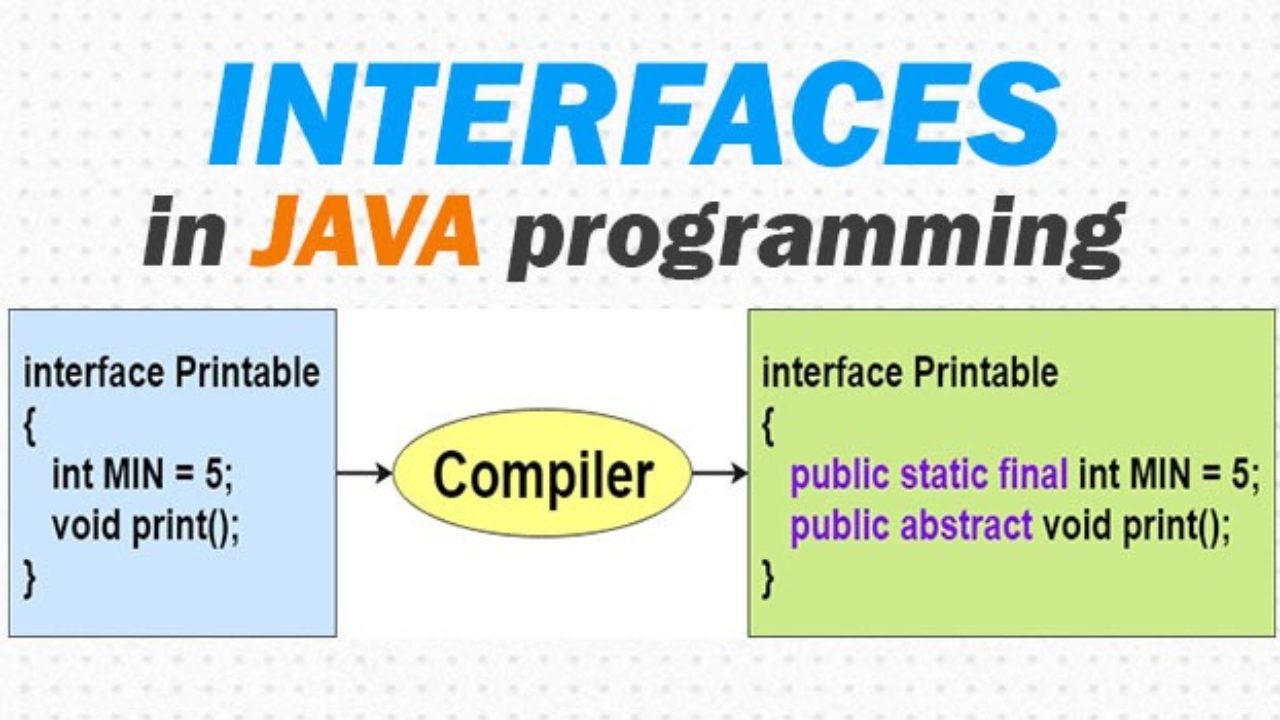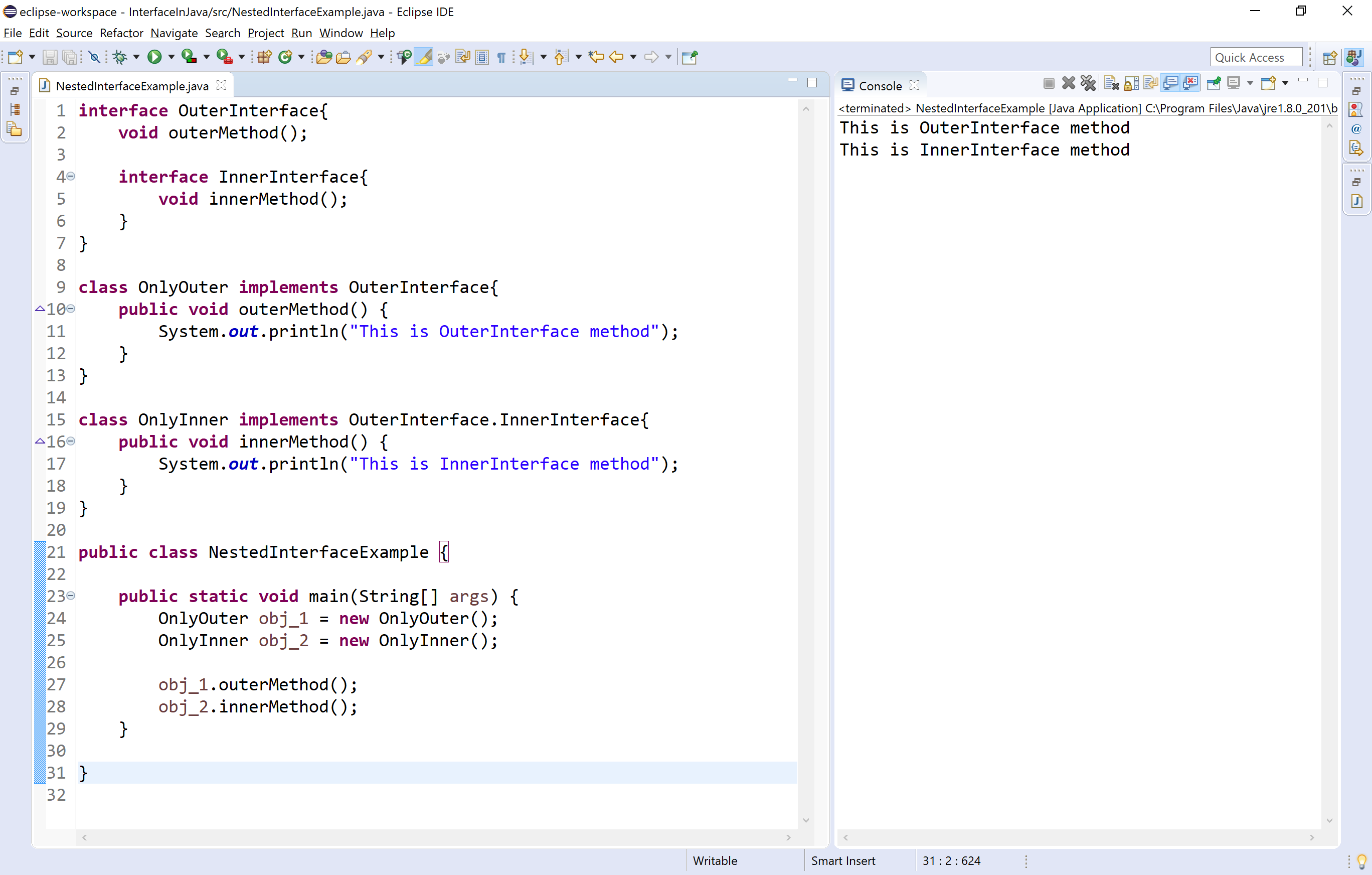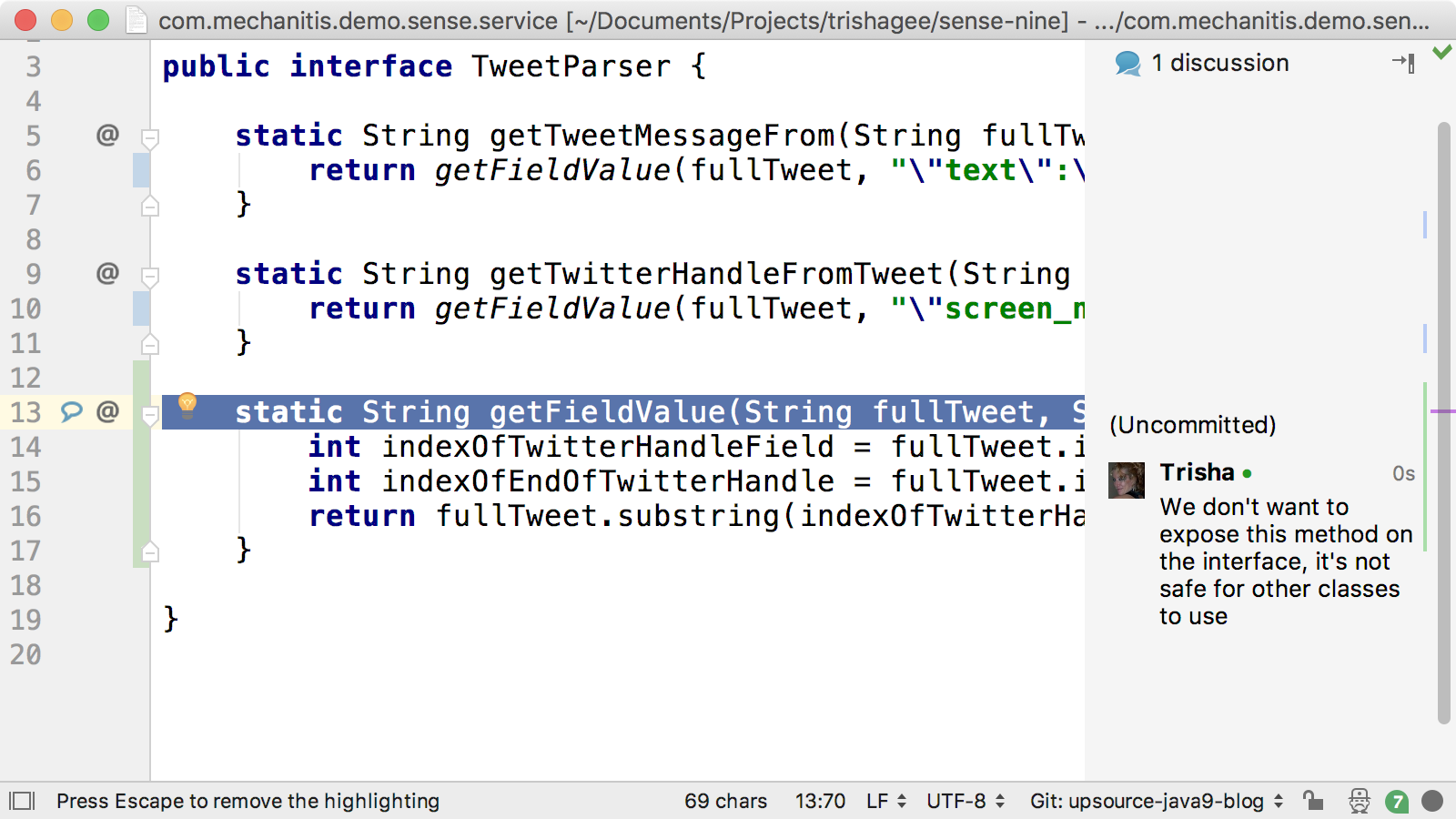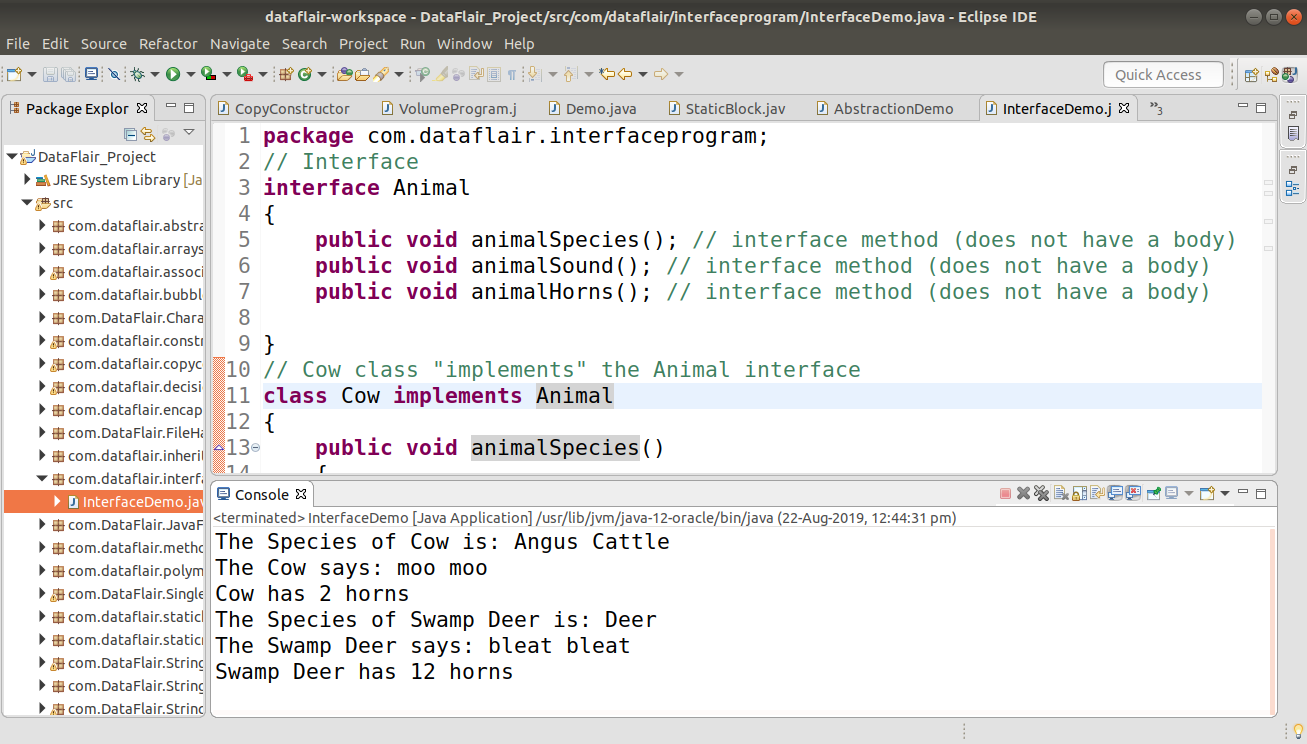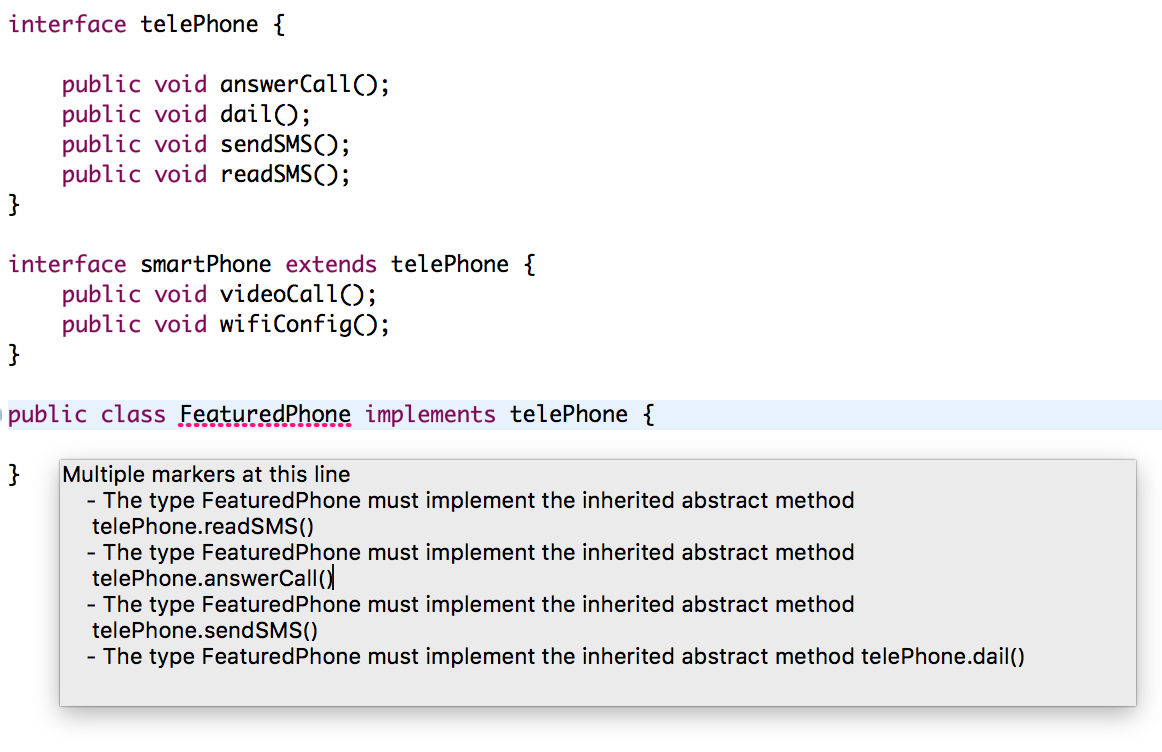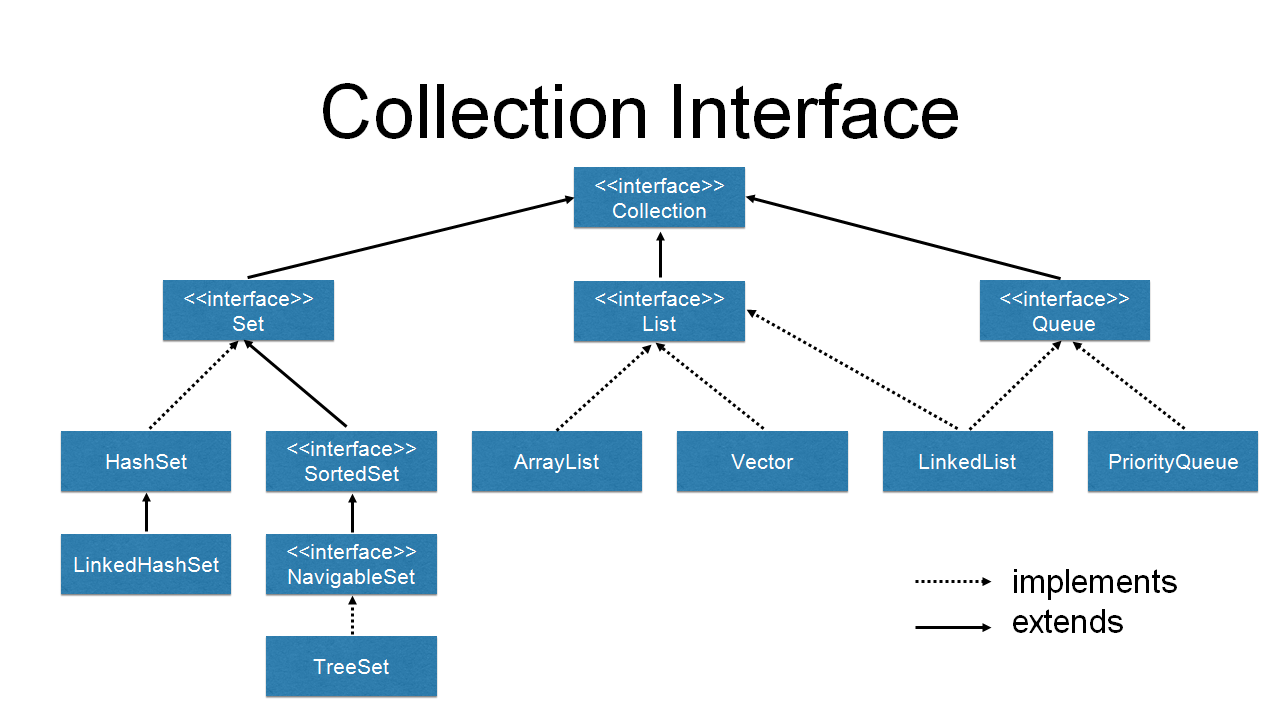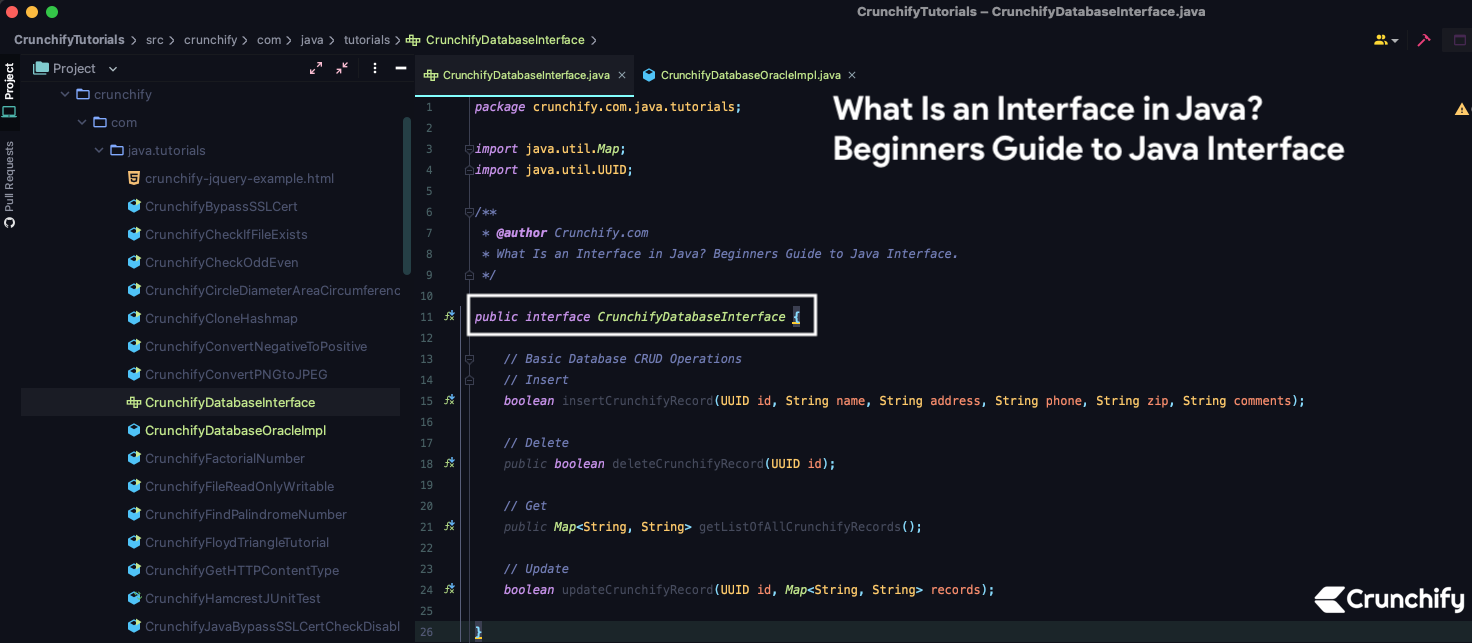Can’t-Miss Takeaways Of Tips About How To Write A Java Interface

How to define interfaces in java defining interfaces isn't at all that hard.
How to write a java interface. To declare an interface, place the keyword interface before the interface name. Interface methods are by default abstract and public interface attributes are by default public, static and final an interface cannot contain a constructor (as it cannot be used to create objects) why and when to use interfaces? Your class can implement more than one interface, so the implements.
In java, an interface is an abstract type that contains a collection of methods and constant variables. In fact, it's quite similar to defining a class. An interface in java programming language is defined as an abstract type used to specify the behavior of a class.
Interfaces form a contract between the class and the outside world, and this contract is enforced at build time by the compiler. 8) variables declared in interface are public, static and final by default. They help to write safer and cleaner code by removing the complexities associated with tracking mutable state changes.
Java ® platform, standard edition & java development kit version 21 api specification. As one of java's core concepts, abstraction, polymorphism, and multiple. What are interfaces in java?
Simply put, an interface is a collection of methods with empty bodies. 7) all the interface methods are by default abstract and public. An interface is written in a file with a.java extension, with the name of the interface matching the name of the file.
// constant declarations, if any. In the java programming language, an interface is a reference type, similar to a class, that can contain only constants, method signatures, default methods, static methods, and. This document is divided into two sections:
Interfaces allow you to define the behavior of a class without. This minimizes the risk of bugs and. The interface is declared as an interface, and the implementation is declared as a class which implements the interface.
To declare a class that implements an interface, you include an implements clause in the class declaration. However, whereas a class can extend only one other class, an interface can extend any. Interfaces are an important part of java, and they provide several benefits, such as:
Let’s take a look at the runnable interface in the java.lang. A java interface contains static constants and. If your class claims to implement an interface, all.
Comparable interface is a great example of generics in interfaces and it’s written as: Your class can implement more than one interface, so the implements. An interface can extend other interfaces, just as a class subclass or extend another class.


